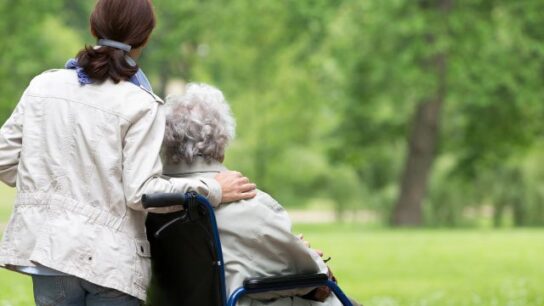Key Takeaways:
- Finding the ideal dog daycare is about matching your pet’s needs with the right services.
- Understand the multifaceted impact of socialization on your dog’s overall well-being.
- Dog daycare can be a constructive environment to address separation anxiety and behavioral issues.
- Ensure the facility’s health, safety, and hygiene standards meet your expectations.
- Age-appropriate activities and trained staff are key indicators of a quality daycare.
Table of Contents:
- Introduction
- Understanding Socialization
- Signs of Poor Socialization
- Daycare Benefits for Socialization
- Peer Learning in a Daycare Setting
- The Importance of Supervised Play
- Combating Separation Anxiety
- Age-Specific Care in Daycare
- Dispelling Myths About Dog Daycare
- Choosing the Right Daycare
- The Long-Term Advantages of Dog Daycare
Introduction
Selecting the best daycare for your dog extends beyond convenience and affordability. It’s about choosing an environment that nurtures your pet’s sociability, security, and happiness. Enrolling your furry family member in the premier dog daycare in Seattle promises a structured approach to cultivating their social skills, improving behavioral obedience, and offering invaluable companionship. This comprehensive guide will explore the factors that make a dog daycare exceptional and help you make an informed choice for your canine’s optimal care.
Understanding Socialization
Socialization is an ongoing process by which dogs learn to relate appropriately to people, other animals, and their environment. This education shapes their personality and influences their ability to cope with life’s challenges. Effective socialization strategies involve exposing dogs to various positive experiences in a way that is neither overwhelming nor frightening. When done right, socialization results in a well-mannered pet, capable of adapting to new situations and behaving amicably in diverse settings.
Signs of Poor Socialization
Dogs that lack social exposure often exhibit symptoms that hinder their interaction with the world. Signs of under-socialization can include fearfulness, aggression, or an inability to cope with new experiences. These intrinsic defenses are often a by-product of the dog not having enough opportunities to engage with various stimuli during their critical development period positively. Noticing and correcting these behaviors early can lead to breakthroughs in your dog’s social capabilities.
Daycare Benefits for Socialization
A quality dog daycare is a supplemental educational institution for our furry friends. It’s where dogs gain the social finesse needed to navigate their environments confidently. In this fostering milieu, dogs learn through structured play, disciplined interactions, and positive reinforcement, all under professional supervision. The goal is a socially adept, well-rounded dog with the skills to integrate seamlessly into human and canine communities.
Peer Learning in a Daycare Setting
In a daycare setting, dogs have opportunities for peer-to-peer learning, which is a potent vehicle for behavioral conditioning. Watching and imitating other dogs offers a natural way for pets to learn etiquette and hone their instincts. Carefully matched playgroups in daycare can lead to enhanced learning experiences, where more timid dogs can become emboldened, and boisterous dogs learn to temper their play to the social cues of their companions.
The Importance of Supervised Play
Supervision goes hand-in-hand with play in dog daycares. Attentive staff can preempt negative interactions before they blossom into troubling behaviors. The guiding principle is to nurture positive experiences, ensuring that every play session contributes to the dogs’ social growth. Staff can discern subtle shifts in play dynamics and can redirect or calm dogs as needed, facilitating a safe and enriching environment.
Combating Separation Anxiety
Daycare attendance can be a strategic response to separation anxiety, offering a social outlet that counteracts the stresses associated with an owner’s absence. Beyond mere distraction, the daycare routine provides predictability for dogs, which can be comforting and lessen the anxious behaviors exhibited when left alone, ultimately cultivating a sense of normalcy and security.
Age-Specific Care in Daycare
An insightful daycare recognizes that puppies, adult dogs, and seniors have distinct needs. Programs should be tailored to meet these varying requirements. For instance, puppies may thrive with frequent socialization and play but also need adequate rest to prevent overstimulation. Older dogs might appreciate more tranquil surroundings and may require specialized care. Acknowledging and catering to these developmental stages showcases a daycare’s commitment to individualized attention.
Dispelling Myths About Dog Daycare
Concerns regarding aggression and illness often dissuade pet owners from considering daycare options. Yet, these fears are typically unfounded in high-quality facilities. Stringent health protocols, proper staff training, and behavior evaluations are standard practices to maintain a nurturing and safe environment. Understanding these protective measures can alleviate concerns and highlight the many advantages that dog daycares offer.
Choosing the Right Daycare
Selecting an appropriate daycare is a pivotal decision that should be carefully considered. Look for facilities that offer transparent communication about their practices and standards. Personal visits can offer insights into the daycare’s daily operations and overall atmosphere. Dialogue with the staff and observe their interactions with the dogs in their care to gauge the suitability of the environment for your pet.
The Long-Term Advantages of Dog Daycare
Enlisting a reliable daycare for your dog brings multifarious benefits beyond immediate gratification. It sets the stage for your dog’s behavioral success, social aptitude, and emotional health. These establishments provide regular exercise, mental stimulation, and are conducive to sustaining a gentle disposition, all vital components for a joyful and balanced canine life. Dogs that attend daycare often exhibit better behavior both at home and in public. The structured environment of daycare, along with positive reinforcement from staff, can help address behavioral issues such as excessive barking, separation anxiety, or destructive behavior.








